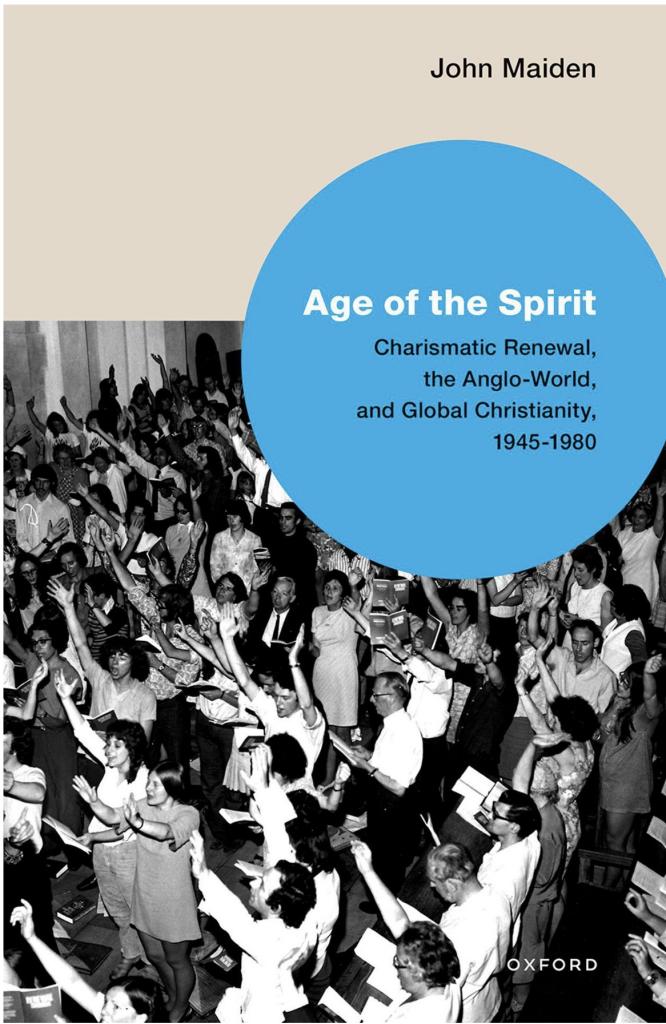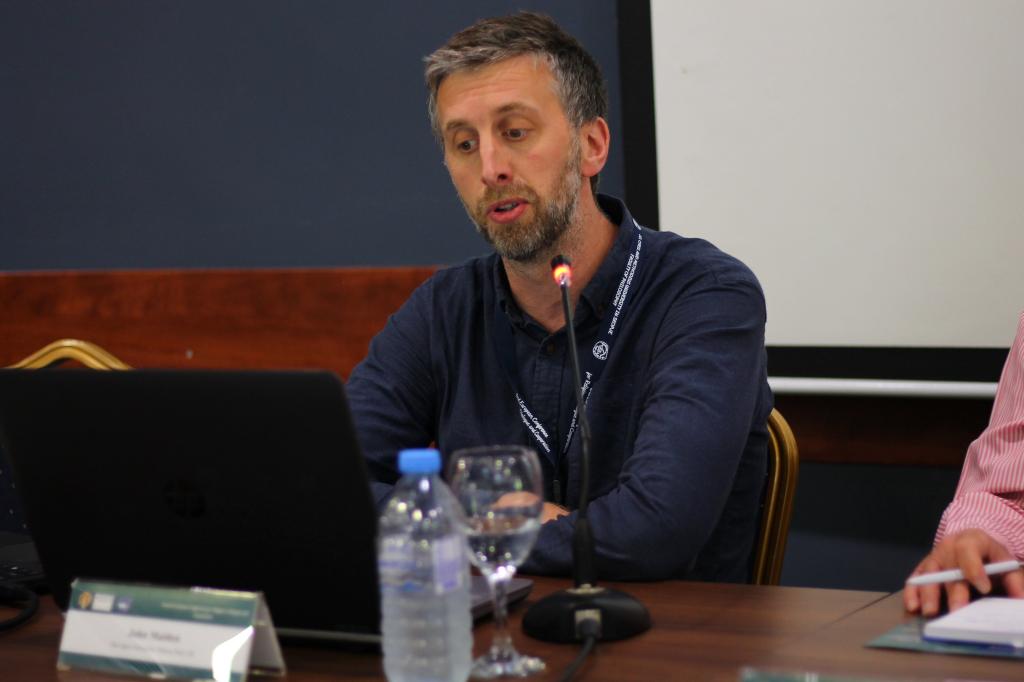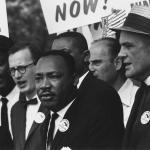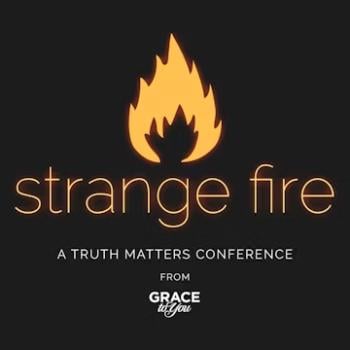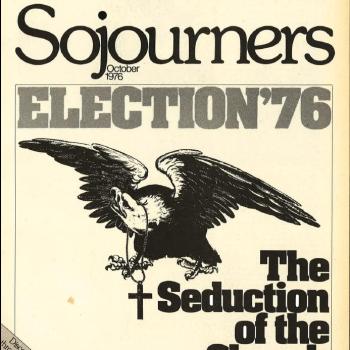John Maiden is a very good British scholar, whose new book strikes me as really interesting. This is Age of the Spirit: Charismatic Renewal, the Anglo-World, and Global Christianity, 1945-1980, just out from Oxford University Press. Anyone interested in modern US Christian history will know about the dramatic rise of Pentecostal and Charismatic forms of faith since the mid-twentieth century, but it is really useful to have this kind of comparative transnational dimension, to prevent us trying to see and explain things only in the specific US context.
And it is useful to note that you can order online with promotion code AAFLYG6 to save 30%.
John kindly agreed to offer this summary of his book:
Age of the Spirit; or, How The Charismatic Renewal Changed Everything
John Maiden
Charismatic, Spirit-led, or Spirit-filled Christianity is now very much a normal – perhaps even dominant – expression of the faith in churches of the English-speaking world. The current Pope and the Archbishop of Canterbury are each in their own way advocates, non-denominational leaders and apostles are dominant figures in social media, and even in conservative evangelical churches, charismatic modes of embodiment and patterns of ministry have become widespread.
But if charismatic is now mainstream, it was not always such.
In the Sixties, charismatic renewal was very much on the periphery of church life. It was not always easy to be a charismatic in a mainline denomination. There was often suspicion. In Southern California, Morton Kelsey described prayer groups – where pentecostals, Episcopalians, Methodists and many others rubbed shoulders to rediscover the supernatural gifts – as having ‘some of the characteristics of a secret society’ such was the threat of ‘ridicule or censure’. It was common to hear language like that used by one Catholic priest, in Issaquah, Washington State, describing tongues as a ‘liturgy of hypnotism’— and a likening this charismatic practice with the religion of so-called primitive societies. Amongst the ‘frozen chosen’ of Episcopalianism, and in various mainline denominations, different official commissions considered the potential dangers of charismatic practice. It was the same in other countries. In New Zealand, the historian Peter Lineham described anti-charismatic behaviour in the Brethren churches as comparable to that of McCarthyite anti-communism.
As a historian of twentieth century Christianity – and someone with a personal background in charismatic churches – I find myself fascinated about how and why charismatic renewal moved from the periphery to the mainstream in such a short period of time. The question ‘how did charismatic renewal change everything?’ is at the heart of Age of the Spirit (Oxford University Press). To answer this question I have immersed myself in charismatic sub-culture: in the books, magazines, and prophecies of the renewal; in the archives of the Blessed Trinity Society in California, of the Catholic Charismatic Renewal Service Committee at Notre Dame, the Fountain Trust in Britain, and of various similar renewal organisations in Canada, the Republic of Ireland, New Zealand, Australia and South Africa; in conversation with various participants in the renewal; and in the sounds of renewal – the music of the Fisherfolk from Houston, Scripture in Song from Auckland, Merv and Merla from Toronto, and the recorded sermons of countless charismatic teachers. The book is a transnational study or the charismatic ‘imaginary’ or imagination of what the Spirit was doing in the world. It follows the exchange of ideas, media, experiences, and practices like prayer and prophecy, across national borders. The renewal was a child of the jet age.
The picture which emerges is one which places charismatic renewal firmly in the context of the ‘long’ 1960s. Many turned to charismatic spirituality as they were also trying to make sense of declining churches, rapid social and moral change, technological developments, and geo-political uncertainties. However, I’ve also discovered many surprising continuities: lineages of proto-charismatic spirituality stretching decades back before the 1960s, to Keswick spirituality, the mainline healing resurgence of the interwar years, the Oxford Group, and lay Catholic devotionalisms, such as the Legion of Mary. Charismatic renewal rearticulated and reshaped various strands of Spirit-filled Christianity, imagining a global work of the Holy Spirit – a ‘new Pentecost’ – against a backdrop of enormous social and political change. Very often this took place through global connections reaching way beyond the English-speaking world: returning missionaries who had witnessed spiritual power in sub-Saharan Africa and Latin America, Bible smugglers working across the Iron Curtain, pioneering charismatic ministries in Singapore, Seoul, and Buenos Aires. This is a transnational history of a rhizomic global movement– no part of the geographical jigsaw makes much sense without the other pieces.
Arguably one of the strengths of charismatic Christianity is the expectation that the Spirit is doing something –a ‘new thing’ – in the present, and in the future. A weakness, perhaps, is to give insufficient attention to the past. To think about the emergence and development of charismatic renewal – its movement from the edges to the middle – might offer a more rounded perspective for the present. It may equip charismatic Christians to be more ready to ask difficult questions. What, for example, has happened to the early charismatic emphases on reconciliation and ecumenism? Age of the Spirit is a work of history, but I hope it will be of some value to the church today, as it seeks to understand itself.
Dr John Maiden is Head of Department for Religious Studies at the Open University.


